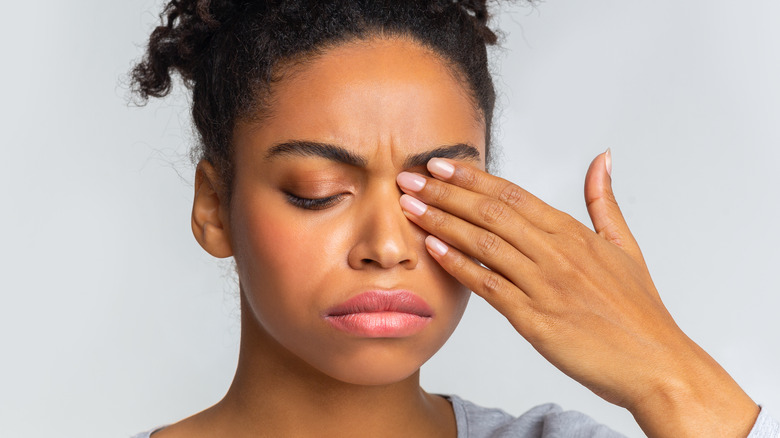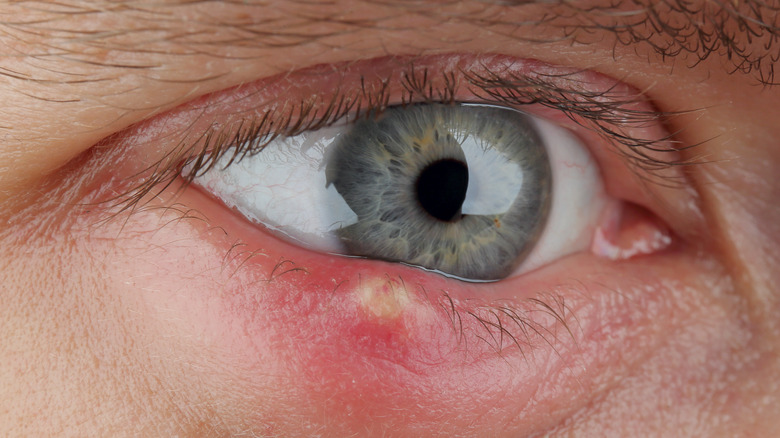If You Keep Getting Styes, It Could Be A Sign Of This
A sty is a painful, reddish, or pinkish inflamed lump that develops on the outer or inner edge of the eyelids because of an underlying bacterial infection, according to Healthline. You can get styes even if you take good care of your eyes. They tend to resemble pimples, and in addition to causing swelling in the eyelids, they may cause your eyes to water and produce yellow discharge. Because they are so close to the eyelashes, they can be really uncomfortable.
Although styes are quite common, luckily, they generally aren't contagious. However, small amounts of the bacteria may spread within people you come in close contact with — particularly babies — if you don't wash your hands after touching your eyes (via Cleveland Clinic). As a precaution, it's best to take care of eye hygiene when you have a sty and wash your hands often. You'll also want to avoid sharing makeup with other people, warns Healthline.
What causes recurrence of styes?
According to a 2022 StatPearls chapter, the bacteria most often responsible for styes is Staphylococcus aureus, which may target either the follicles of the eyelash or the meibomian glands in the inner eyelid.
If your styes keep recurring, it can certainly be annoying and you may want to figure out the root cause. For example, they may be caused by sleep deprivation. Moreover, constant stress affects your immune system, and therefore leads to an increased risk of getting eye lumps, notes Healthline. Those who have high blood sugar or diabetes often experience styes as well, primarily because of lower immunity, adds Duke Eye Center.
Another reason why you may keep getting styes is not removing makeup products before going to bed, and not taking proper care of contact lenses (via Healthline). Eye and skin conditions like blepharitis and rosacea can also play a role. Additionally, you may be allergic to dust or house mold (per Livestrong).
Keeping these factors in mind, make sure you follow proper hygiene, avoid allergens, and be careful with makeup and contact lenses if you want to prevent styes in the future.

